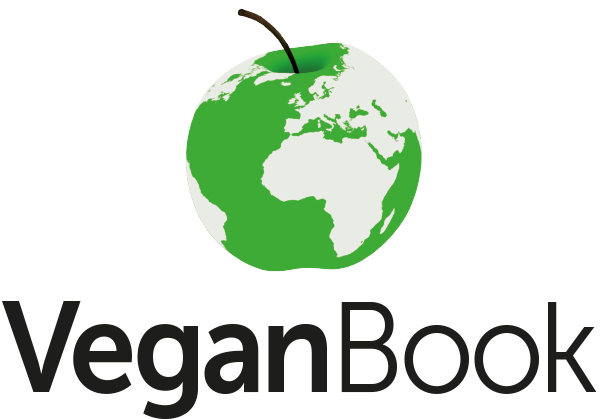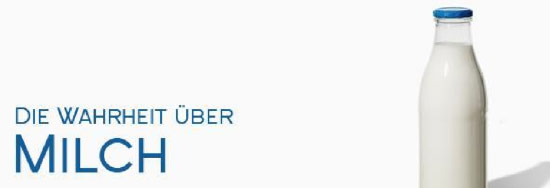Darm-, Prostata und Brustkrebs
Die erhöhte Aufnahme von tierlichem Protein, Milch, Milchprodukten und Kalzium lässt den insulinähnlichen Wachstumsfaktor IGF-1 ansteigen. Ein hoher IGF-1-Level wird mit einer Vielzahl an Krebserkrankungen wie Darm-, Prostata oder Brustkrebs in Verbindung gebracht. Dagegen wurde festgestellt, dass sich der IGF-1-Level beim Konsum von Gemüse und Beta-Carotin, welches sich in orangefarbenem Obst und Gemüse sowie in dunkelgrünem Blattgemüse befindet, senkte.
Referenz: Norat T, Dossus L, Rinaldi S, et al. (2007): Diet, serum insulin-like growth factor-I and IGF-binding protein-3 in European women. In: Eur J Clin Nutr. 2007 Jan;61(1): 91-98. http://www.ncbi.nlm.nih.gov/pubmed/16900085
Prostatakrebs durch Milch und Milchprodukte
Prostatakrebs ist die häufigste Krebserkrankung bei Männern. Viele internationale Studien haben den Konsum von Milch und Milchprodukten mit Prostatakrebs in Verbindung gebracht. Die Studien zeigten, dass ein höheres Risiko von Prostatakrebs bei denjenigen Personen besteht, die am häufigsten Milchprodukte konsumieren.
Referenzen:
1. World Cancer Research Fund/American Institute for Cancer Research. Food, Nutrition, and the Prevention of Cancer: A Global Perspective. American Institute for Cancer Research, Washington, D.C., 1997, p. 311.
2. Chan JM, Stampfer MJ, Giovannucci EL. What causes prostate cancer? A brief summary of the epidemiology. Sem Canc Biol. 1998a;8:263-273.
3. Howell MA. Factor analysis of international cancer mortality data and per capita food consumption. Br J Cancer. 1974;29:328-336.
4. Armstrong B, Doll R. Environmental factors and cancer incidence and mortality in different countries, with special reference to dietary practices. Int J Cancer. 1975;15: 617-631.
5. Rose DP, Boyar AP, Wynder EL. International comparisons of mortality rates for cancer of the breast, ovary, prostate, and colon, and per capita food consumption. Cancer. 1986;58:2363-2371.
6. Decarli A, La Vecchia C. Environmental factors and cancer mortality in Italy: correlational exercise. Oncology. 1986;43:116-126.
7. Hebert JR, Hurley TG, Olendzki BC, Teas J, Ma Y, Hampl JS. Nutritional and socioeconomic factors in relation to prostate cancer mortality: a cross national study. J Natl Cancer Inst. 1998;90(21):1637-1647.
8. Talamini R, La Vecchia C, Decarli A, Negri E, Franceschi S. Nutrition, social factors and prostatic cancer in a Northern Italian population. Br J Cancer. 1986;53:817-821.
9. Mettlin C, Selenskas S, Natarajan N, Huben R. Beta-carotene and animal fats and their relationship to prostate cancer risk. Cancer. 1989;64:605-612.
10. Talamini R, Franceschi S, La Vecchia C, Serraino D, Barra S, Negri E. Diet and prostate cancer: a case-control study in Northern Italy. Nutr Cancer. 1992;118:277-286.
11. De Stefani E, Fierro L, Barrios E, Ronco A. Tobacco, alcohol, diet and risk of prostate cancer. Tumori 1995;81:315-320.
12. Chan JM, Giovannucci EL, Andersson SO, Yuen J, Adami HO, Wolk A. Dairy products, calcium, phosphorous, vitamin D, and risk of prostate cancer (Sweden). Cancer Causes and Control. 1998b;9:559-566.
13. Hayes RB, Ziegler RG, Gridley G, Swanson C, Greenberg RS, Swanson GM, Schoenberg JB, Silverman DT, Brown LM, Pottern LM, Liff J, Schwartz AG, Fraumeni JF Jr, Hoover RN. Dietary factors and risks for prostate cancer among blacks and whites in the United States. Cancer Epidemiol Biomar Prev. 1999;8:25-34.
14. Rotkin ID. Studies in the epidemiology of prostatic cancer: expanded sampling. Cancer Treatment Reports. 1977;61:173-180.
15. Schuman LM, Mandel JS, Radke A, Seal U, Halberg F. Some selected features of the epidemiology of prostatic cancer: Minneapolis-St. Paul, Minnesota case-control study, 1976-1979. In Magnus K, Ed. Trends in Cancer Incidence: Causes and Practical Implications, Hemisphere Publishing, Washington, D.C.; 1982:345-54. 16. Mishina T, Watanabe H, Araki H, Nakao M. Epidemiological study of prostatic cancer by matched-pair analysis. Prostate. 1985;6:423-436. 17. Tzonou A, Signorello LB, Lagiou P, Wuu J, Trichopoulos D, Trichopoulou A. Diet and cancer of the prostate: a case-control study in Greece. Int J Cancer. 1999;80:704-708.
18. Grönberg H, Damber L, Damber JE. Total food consumption and body mass index in relation to prostate cancer risk: a case-control study in Sweden with prospectively collected exposure data. J Urology. 1996;155:969-974.
19. Ewings P, Bowie C. A case-control study of cancer of the prostate in Somerset and east Devon. Br J Cancer. 1996;74:661-666.
20. Andersson SO, Baron J, Wolk A, Lindgren C, Bergstrom R, Adami HO. Early life risk factors for prostate cancer: a population-based case-control study in Sweden. Cancer Epidemiol Biomar Prev. 1995;4:187-192.
21. Snowdon DA, Phillips RL, Choi W. Diet, obesity, and risk of fatal prostate cancer. Am J Epidemiology. 1984;120:244-250.
22. LeMarchand L, Kolonel LN, Wilkens LR, Myers BC, Hirohata T. Animal fat consumption and prostate cancer: a prospective study in Hawaii. Epidemiology. 1994;5:276-282.
23. Giovannucci E, Rimm EB, Wolk A, Ascherio A, Stampfer MJ, Colditz GA, Willett WC. Calcium and fructose intake in relation to risk of prostate cancer. Cancer Res. 1998a;58:442-447.
24. Schuurman AG, van den Brandt PA, Dorant E, Goldbohm RA. Animal products, calcium and protein and prostate cancer risk in the Netherlands Cohort Study. Br J Cancer. 1999;80:1107-1113.
25. Chan JM, Stampfer MJ, Ma J, Gann PH, Gaziano JM, Giovannucci E. Dairy products, calcium, and prostate cancer risk in the Physicians’ Health Study. Am J Clin Nutr. 2001;74:549-554.
26. Hirayama T. Epidemiology of prostate cancer with special reference to the role of diet. Natl Cancer Inst Monogr. 1979;53:149-155.
27. Mills PK, Beeson WL, Phillips RL, Fraser GE. Cohort study of diet, lifestyle, and prostate cancer in Adventist men. Cancer. 1989;64:598-604.
28. Severson RK, Nomura AMY, Grove JS, Stemmermann GN. A prospective study of demographics, diet, and prostate cancer among men of Japanese ancestry in Hawaii. Cancer Res. 1989;49:1857-1860.
29. Thompson MM, Garland C, Barrett-Connor E, Khaw KT, Friedlander NJ, Wingard DL. Heart disease risk factors, diabetes, and prostatic cancer in an adult community. Am J Epidemiol. 1989;129:511-517.
30. Hsing AW, McLaughlin JK, Schuman LM, Bjelke E, Gridley G, Wacholder S, Co Chien HT, Blot WJ. Diet, tobacco use, and fatal prostate cancer: results from the Lutheran brotherhood cohort study. Cancer Res. 1990;50: 6836-6840.
31. Veierød MB, Laake P, Thelle DS. Dietary fat intake and risk of prostate cancer: a prospective study of 25,708 Norwegian men. Int J Cancer. 1997;73:634-638.
32. Giovannucci E. Dietary influences of 1,25(OH)2 vitamin D in relation to prostate cancer: a hypothesis. Cancer Causes and Control. 1998b;9:567-582. 33. Cadogan J, Eastell R, Jones N, Barker ME. Milk intake and bone mineral acquisition in adolescent girls: randomised, controlled intervention trial. BMJ. 1997;315:1255-1260.
34. Heaney RP, McCarron DA, Dawson-Hughes B, Oparil S, Berga SL, Stern JS, Barr SI, Rosen CJ. Dietary changes favorably affect bone remodeling in older adults. J Am Dietetic Asso. 1999;99:1228-1233.
35. Iwamura M, Sluss PM, Casamento JB, Cockett ATK. Insulin-like growth factor I: action and receptor characterization in human prostate cancer cell lines. Prostate. 1993;22:243-252.
36. Culig Z, Hobisch A, Cronauer MV, Radmayr C, Trapman J, Hittmair A, Bartsch G, Klocker H. Androgen receptor activation in prostatic tumor cell lines by insulin-like growth factor-I, keratinocyte growth factor, and epidermal growth factor. Eur Urol. 1995;27(suppl 2):45-47.
37. Cohen P. Serum insulin-like growth factor-I levels and prostate cancer risk—interpreting the evidence. J Natl Cancer Inst. 1998;90:876-879.
38. Allen NE, Appleby PN, Davey GK, Key TJ. Hormones and diet: low insulin-like growth factor-I but normal bioavailable androgens in vegan men. Br J Cancer. 2000;83:95-97.
39. Kontessis PA, Bossinakou I, Sarika L, Iliopoulou E, Papantoniou A, Trevisan R, Roussi D, Stipsanelli K, Grigorakis S, Souvatzoglou A. Renal, metabolic, and hormonal responses to proteins of different origin in normotensive, nonproteinuric type I diabetic patients. Diabetes Care. 1995;18:1233-1240.
40. Ross RK, Henderson BE. Do diet and androgens alter prostate cancer risk via a common etiologic pathway? J Natl Cancer Inst. 1994:86:252-254.
41. Giovannucci E, Rimm EB, Colditz GA, Stampfer MJ, Ascherio A, Chute CC, Willett WC. A prospective study of dietary fat and risk of prostate cancer. J Natl Cancer Inst. 1993;85:1571-1579.
42. Jacobsen BK, Knutsen SF, Fraser GE. Does high soy milk intake reduce prostate cancer incidence? The Adventist Health Study (United States). Cancer Causes and Control. 1998;9:553-557.
43. Bosetti C, Tzonou A, Lagiou P, Negri E, Trichopoulos D, Hsieh C-C. Fraction of prostate cancer incidence attributed to diet in Athens, Greece. Eur J Cancer Prev. 2000;9:119-123.
44. U.S. Department of Agriculture and Department of Health and Human Services. Nutrition and Your Health: Dietary Guidelines for Americans, 5th Edition. Home and Garden Bulletin No. 232. U.S. Department of Agriculture, Washington, D.C., 2000, p. 36.
45. Smith-Warner SA, Spiegelman D, Yuan SS, van den Brandt PA, Folsom AR, Goldbohm A, Graham S, Holmberg L, Howe GR, Marshall JR, Miller AB, Potter JD, Speizer FE, Willett WC, Wolk A, Hunter DJ. Alcohol and breast cancer among women: a pooled analysis of cohort studies. JAMA. 1998;279:535-540.
46. World Cancer Research Fund/American Institute for Cancer Research. Food, Nutrition, and the Prevention of Cancer: A Global Perspective. American Institute for Cancer Research, Washington, D.C., 1997, pp. 270-74.
47. Welten DC, Kemper HCG, Post GB, Van Staveren WA. A meta-analysis of the effect of calcium intake on bone mass in young and middle-aged females and males. J Nutr. 1995;125: 2802-2813 .
48. Holt PR, Attilsoy EO, Gilman J, Guss J, Moss SF, Newmark H, Fan K, Yang K, Lipkin M. Modulation of abnormal colonic epithelial cell proliferation and differentiation by low-fat dairy foods: a randomized controlled trial. JAMA. 1998;280:1074-1079.
49. Walker ARP, Segal I. Low-fat dairy foods and colonic epithelial cell proliferation (letter). JAMA. 1999;281:1274.
50. Griffith LE, Guyatt GH, Cook RJ, Bucher HC, Cook DJ. The influence of dietary and nondietary calcium supplementation on blood pressure: an updated metaanalysis of randomized controlled trials. Am J Hypertension. 1999;12:84-92.
51. Sacks FM, Appel LJ, Moore TJ, Obarzanek E, Vollmer WM, Svetkey LP, Bray GA, Vogt TM, Cutler JA, Windhauser MM, Lin PH, Karanja N. A dietary approach to prevent hypertension: a review of the Dietary Approaches to Stop Hypertension (DASH) study. Clin Cardiol. 1999;22(suppl III):III-6-III-10.
Brust-, Eierstock- und Gebärmutterkrebs durch Tierprodukte
Eine Studie aus dem Jahr 2005 untersuchte bei Frauen aus 40 Ländern den Zusammenhang zwischen Ernährung und Brust-, Eierstock- sowie Gebärmutterkrebs. Es konnte nachgewiesen werden, dass die Krebswahrscheinlichkeit mit der aufgenommenen Menge an Fleisch, Milchprodukten und Käse ansteigt. Pflanzliche Lebensmittel wie Bohnen und Getreide senkten dagegen die Wahrscheinlichkeit für die Entstehung von Krebs.
Referenz: Ganmaa D, Sato A. (2005): The possible role of female sex hormones in milk from pregnant cows in the development of breast, ovarian and corpus uteri cancers. In: Med Hypotheses. 2005; 65(6):1028-37. Epub 2005 Aug 24. http://www.ncbi.nlm.nih.gov/pubmed/16125328?dopt=Citation
Brustkrebs
Britische Forscher fanden heraus, dass ein hoher Fettanteil in der Ernährung einen starken Einfluss auf die Brustkrebsentstehung hat. Wenn nicht künstlich reduziert, haben tierliche Nahrungsmittel einen sehr hohen Fettanteil, pflanzliche Lebensmittel dagegen, bis auf wenige Ausnahmen, einen sehr geringen Fettanteil. Pflanzliche Lebensmittel, insbesondere Getreide und Hülsenfrüchte, sollen zudem vorbeugend gegen Brustkrebs wirken.
Referenz: Wiseman R. (2000): Breast cancer hypothesis: a single cause for the majority of cases. J Epidemiol Community Health 2000; 54:851-8. http://www.ncbi.nlm.nih.gov/pmc/articles/PMC1731579/pdf/v054p00851.pdf
Darmkrebs auch durch Käse
Der World Cancer Research Fund (WCRF) und das American Institute for Cancer Research (AICR) zeigten in einer Studie auf, dass der Konsum von Käse möglicherweise das Dickdarmkrebsrisiko erhöht.
Referenz: World Cancer Research Fund (WCRF) und American Institute for Cancer Research (AICR) (2007): Food, nutrition, physical activity, and the prevention of cancer: a global perspective. 129, 139, 179

